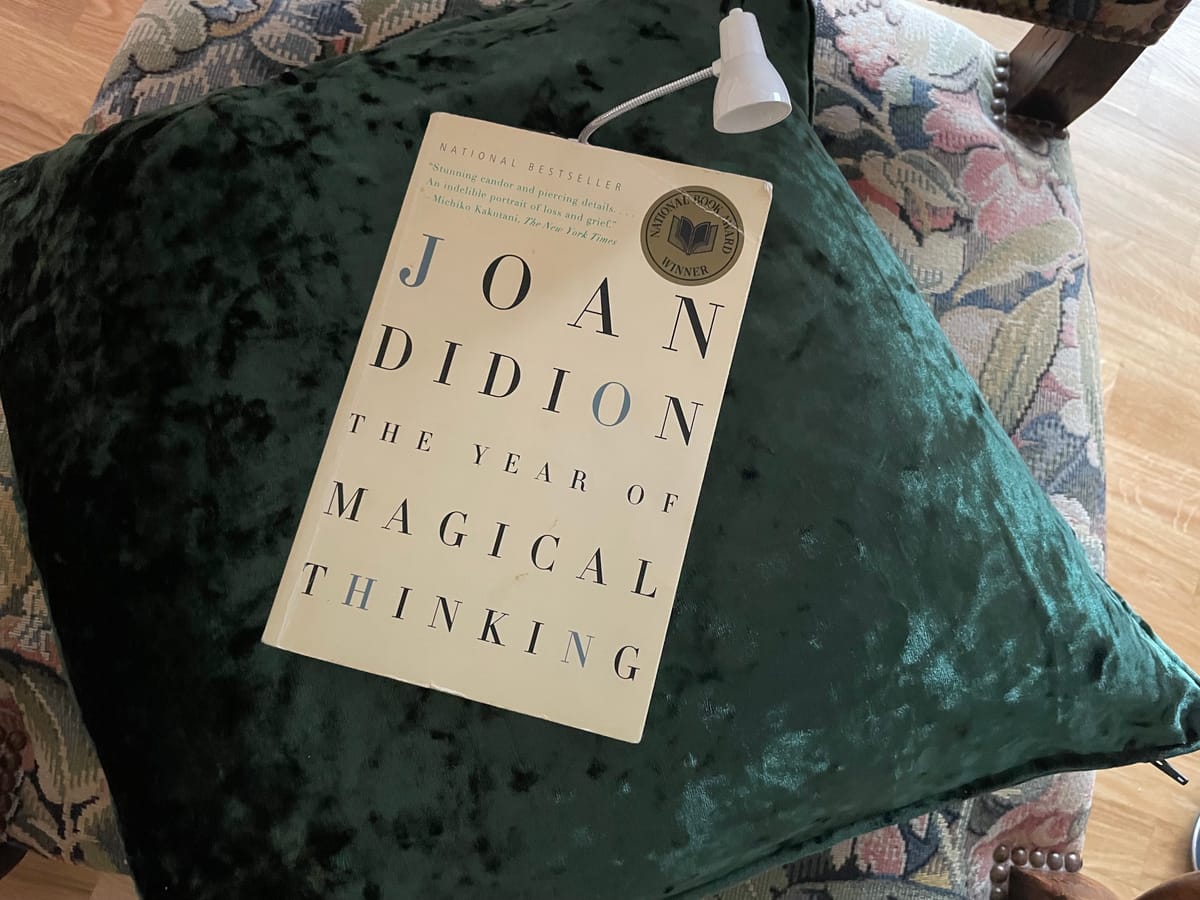The Year of Magical Thinking
Didion grieves the loss of her husband and tries to make sense of her daughter's disease.

Book by Joan Didion
The Year of Magical Thinking is Joan Didion's memoir where she tries to make sense of her husband's sudden death. Didion traces the events that led to her husband's death through her writing and shows us where she is at this moment. The book is structured in a way where she goes back and forth in time every time she spots an object in the house that reminds her of her husband, her daughter, or a friend, which connects her back to her memory of the night of the death. The double whammy in the book is Didion grieving the loss of her husband, while making sense of her only daughter's disease as she is in and out of hospitals from before her husband's death.
What I didn't know before I picked up the book was that Didion's husband was John Dunne who was also a writer. Certain sections of the book stood out to me as she was pondering life, and I kept going back to those lines. But most sections were full of medical jargon, repetitive imagery and unnecessary name dropping (celebrities, writers, actors) who seem to be available at every beck and call, which made the reading experience trite and unreal. I understand that Didion was well established at that time, but her storytelling made her seem less human and more like a famous person trying to sort things out with money and connections. Didion speaks about taking flights to go for dinners, and that's when I should've snapped the book shut, but I didn't.
I expected Didion to talk about their shared struggles as writers, their creative processes, what led them to name their child, or even describe the simple act of buying their first home. I got none of it. Instead I got paragraphs from books she and her husband wrote, poetry that I couldn't understand or relate to and vague descriptions of events, illnesses and blurred outlines of people that made me want more, but ended early. So their connection to the story felt impossible.
I couldn't wait for the book to end because I realised quite late that Didion was still grieving, and so her cognition (as she herself talks about in relation to the grief) creativity and lucidity seem to have been heavily affected. The writing was self-indulgent and the editing could've been tighter. This book is a hard read, so pick it up only if you are extremely inspired by Didion's life and know every little detail about it already.
2/5
